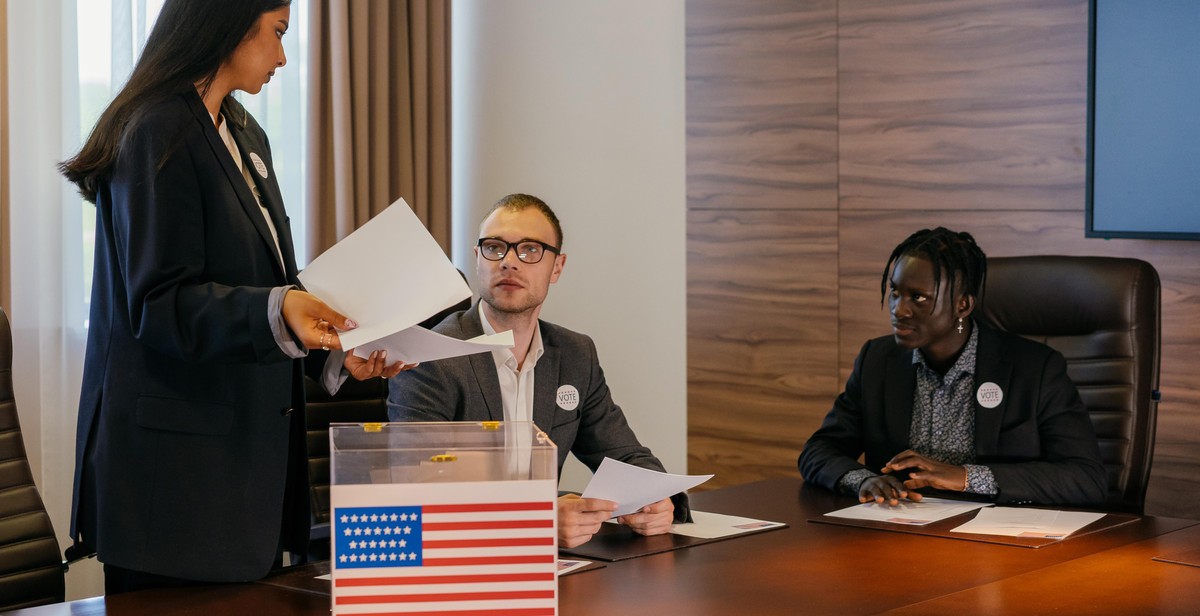How to Get Involved in Local Politics: An Introduction
Are you interested in making a difference in your community? Do you want to have a say in the decisions that affect your neighborhood, city, or town? Then getting involved in local politics might be just the thing for you.
Local politics refers to the decisions and actions taken by elected officials and community leaders at the city, county, or town level. From zoning regulations to school board policies, these decisions have a direct impact on the lives of local residents.
Why Get Involved in Local Politics?
There are many reasons why you might want to get involved in local politics:
- Make a difference: Local politics provides an opportunity to effect real change in your community.
- Get your voice heard: By getting involved in local politics, you can ensure that your opinions and concerns are heard by those in power.
- Learn new skills: Running for office, organizing campaigns, and advocating for change all require skills that can be valuable in both your personal and professional life.
- Meet new people: Local politics is a great way to meet like-minded individuals and build relationships with others in your community.
Whether you’re passionate about education, the environment, or social justice, there’s a way for you to get involved in local politics and make a difference in your community.

Step 1: Research Your Local Government
Before you can get involved in local politics, it’s important to understand the structure of your local government. This will help you determine who to contact and how to get involved.
Find Your Local Government Website
The first step is to find your local government website. This website will provide you with a wealth of information about your local government, including who your elected officials are and how to contact them. To find your local government website, simply do a search for your city or town and “government website” in your preferred search engine.
Once you’ve found your local government website, take some time to explore it. Look for information about your city council or town board, as well as any other local government bodies that may be relevant, such as a planning commission or zoning board.
Learn About Local Officials and Their Roles
Once you’ve found your local government website, the next step is to learn about your local officials and their roles. This will help you understand who to contact when you want to get involved in local politics.
Start by looking for information about your mayor or city/town manager. These individuals are responsible for overseeing the day-to-day operations of your local government and can be a good point of contact if you have questions or concerns about local issues.
You should also look for information about your city council or town board. These elected officials are responsible for making decisions about local policies and ordinances. Understanding their roles and responsibilities can help you determine how to best get involved in local politics.
- Take note of the names and contact information for your local officials so you can easily reach out to them in the future.
- Consider attending a local government meeting to see your officials in action and learn more about how your local government operates.
| Position | Role |
|---|---|
| Mayor/City Manager | Oversees day-to-day operations of local government |
| City Council/Town Board | Makes decisions about local policies and ordinances |
| Planning Commission/Zoning Board | Reviews and approves development plans and zoning changes |
By researching your local government and learning about your local officials, you’ll be better equipped to get involved in local politics and make a difference in your community.

Step 2: Attend Local Government Meetings
Attending local government meetings is a great way to get involved in local politics and stay informed about the decisions being made in your community. Here are some steps to follow:
Find Meeting Dates and Times
The first step is to find out when and where local government meetings are being held. This information is usually available on the local government website or in the local newspaper. You can also call the local government office to get more information.
It is important to note that different government bodies have different schedules. For example, city council meetings may be held on a different day than county commission meetings. Make sure you are attending the correct meeting for the issues that interest you.
Prepare for the Meeting
Before attending the meeting, it is important to do some research. Review the meeting agenda and any supporting documents that are available. This will help you understand the issues being discussed and prepare any questions or comments you may have.
You should also consider reaching out to your local representatives beforehand to introduce yourself and express your interest in the issues being discussed.
Participate in the Meeting
When attending the meeting, it is important to be respectful and follow the meeting rules. Typically, there will be a public comment period where attendees can voice their opinions or concerns on the issues being discussed.
When speaking, be clear and concise. Stick to the topic at hand and avoid personal attacks or insults. It is also important to listen to others who are speaking and be open to different perspectives.
Finally, remember that attending one meeting is not enough. To truly make a difference, you should attend meetings regularly and stay informed on the issues being discussed.

Step 3: Join a Political Party or Organization
Joining a political party or organization is a great way to get involved in local politics. It allows you to connect with like-minded individuals who share your political views and goals. Here are some steps to follow:
Find Local Political Parties or Organizations
The first step is to find local political parties or organizations in your area. You can start by doing some research online or checking with your local government office. You can also ask friends or family members who are involved in politics for recommendations. Once you have a list of options, research each organization to determine which aligns with your beliefs and values.
Attend Meetings and Events
Attending meetings and events hosted by political parties or organizations is a great way to get involved. It allows you to meet members and leaders, learn about the organization’s goals and values, and stay up-to-date on local political issues. Attending meetings and events also gives you the opportunity to ask questions and voice your opinions.
Get Involved in Campaigns
Getting involved in political campaigns is another way to participate in local politics. Political parties and organizations are always looking for volunteers to help with campaigns. You can help with tasks such as canvassing, phone banking, and fundraising. Volunteering for a campaign is a great way to meet other volunteers, learn more about the political process, and make a difference in your community.
Joining a political party or organization can be a rewarding experience that allows you to have a voice in local politics. By attending meetings and events and getting involved in campaigns, you can make a difference in your community and help shape the future of your city or town.

Step 4: Volunteer for Local Political Campaigns
One of the most effective ways to get involved in local politics is by volunteering for political campaigns in your area. Campaigns are always in need of volunteers to help with various tasks, such as canvassing, phone banking, data entry, and event planning.
Find Local Political Campaigns
The first step in volunteering for a political campaign is to find one in your area. You can start by researching the candidates running for office in your city or town. Look up their websites and social media pages to see if they are actively recruiting volunteers.
You can also check with your local political party organizations, such as the Democratic or Republican party, to see if they are supporting any candidates in your area. They may have information on upcoming campaign events or volunteer opportunities.
Contact the Campaign
Once you have identified a campaign you are interested in volunteering for, the next step is to contact them. You can usually find a contact form or email address on the candidate’s website or social media pages. Alternatively, you can reach out to the local party organization and ask for contact information for the campaign.
When you reach out to the campaign, introduce yourself and express your interest in volunteering. Be sure to mention any relevant skills or experience you have that could be useful to the campaign.
Volunteer Your Time and Skills
Once you have connected with the campaign, it’s time to start volunteering your time and skills. Campaigns are always in need of volunteers for a variety of tasks, so there are plenty of opportunities to get involved.
Some common volunteer tasks include:
- Canvassing neighborhoods to talk to voters
- Making phone calls to potential voters
- Assisting with event planning and coordination
- Helping with data entry and organization
- Posting on social media and helping with digital outreach
Be sure to communicate with the campaign staff about your availability and interests, so they can assign you to tasks that are a good fit for you.
| Benefits of Volunteering for Political Campaigns |
|---|
| 1. Gain valuable experience in political organizing and campaigning |
| 2. Meet like-minded individuals who share your passion for politics |
| 3. Make a difference in your community by helping to elect candidates who share your values |
| 4. Build your resume and professional network |
Volunteering for political campaigns can be a rewarding and impactful way to get involved in local politics. By following these steps, you can find a campaign to volunteer for and make a difference in your community.

Step 5: Run for Local Office
If you want to make a real difference in your community, running for local office is a great way to do it. By holding public office, you can have a direct impact on the issues that matter most to you and your neighbors.
Choose the Right Office to Run For
The first step in running for office is deciding which office to run for. There are many different positions available at the local level, from school board member to city councilor to mayor. Think about your skills, interests, and experience, and choose an office that aligns with your strengths.
Prepare for Your Campaign
Once you’ve decided to run for office, it’s time to start preparing for your campaign. This includes creating a campaign plan, building a team of volunteers, and raising funds for your campaign. You’ll also need to create a platform that outlines your goals and priorities for the office you’re running for.
Campaign for Votes
During the campaign, it’s important to get your message out to as many voters as possible. This includes attending community events, speaking at public meetings, and knocking on doors to meet voters in person. You’ll also want to use social media and other online tools to reach voters who may not be able to attend events in person.
Remember, running for office is a big undertaking, but it can be incredibly rewarding. By following these steps and putting in the work, you can make a real difference in your community and help shape the future of your city or town.
